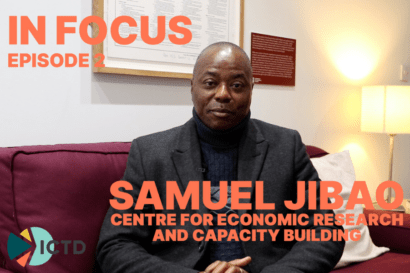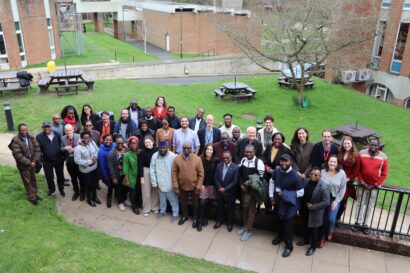Although property taxes can serve as a valuable source of revenue for local governments, they remain largely untapped as a source of revenue in many lower-income countries. Currently, property tax collection in these countries amounts to only 0.1 to 0.4 percent of GDP, which is approximately 10 percent of what wealthier countries achieve. Property tax collection falls short of its potential due to regressive and inequitable systems and weak links between revenues and services, resulting in low tax compliance.
To address this critical gap, the Local Government Revenue Initiative (LoGRI) aims to support governments to raise local revenue more fairly and in ways that promote trust, transparency, and accountability. Guided by this objective, LoGRI hosted its inaugural conference from June 13-15 in Nairobi, Kenya, in partnership with the Intergovernmental Budget and Economic Council (IBEC) and the Kenya School of Revenue Administration (KESRA).
Over 150 government administrators, policymakers, applied researchers, and experts gathered in Nairobi to discuss equitable and progressive property tax systems in lower-income countries.
The conference commenced with an opening address by H.E. Dr. Musalia Mudavadi, the Prime Cabinet Secretary of the Republic of Kenya. Dr. Mudavadi emphasized the significance of local revenue generation for Kenyan county governments in expanding and improving public service delivery, developing financial autonomy, and overcoming constraints in external funding. These themes of government accountability, equity, and progressive reform underscored the conference.
While experiences vary across countries, the presentations and discussions in the plenary and technical sessions revealed that local governments across Africa encounter similar obstacles in pursuing effective reforms. These challenges include political resistance to reform, lack of administrative capacity, complex and costly information technology systems, weak intergovernmental collaboration, and incomplete or outdated valuation rolls. These shortcomings undermine effective and equitable revenue collection, leading to inadequate service delivery and eroding public trust in government.
Illustrating the need for reform, H.E. Hon. Paul Simba Arati, governor of Kisii County in Kenya, noted that the valuation rolls his county relies on dates back to 1978 despite the country’s constitution stipulating that rolls should be updated much more frequently.
Across the continent, governments have begun investing in reform projects. One notable reform project is in Freetown, Sierra Leone. LoGRI researchers worked closely with Mayor Yvonne Aki-Sawyerr and the International Growth Centre (IGC) to set up a more progressive, equitable and transparent property tax system. Other projects often involve adopting information technology (IT) systems, automated property discovery and valuation methodologies, and broad digitalization of property tax administration.
However, although technology innovations can potentially augment property tax administration, several speakers at the conference suggested that technology investments often fail entirely or fall short of their expectations. As such, solutions must be tailored to the capacities and institutional realities of the reform jurisdiction. Property tax reform is also highly politicized, and its success often hinges on public support and the willingness and commitment of key political actors to drive reform and overcome resistance. The absence or inadequacy of political will can be detrimental to reform efforts.
“Property tax reform is a complex process, not an easy technocratic solution. It’s a multi-stakeholder engagement that requires careful navigation” stated Astrid Haas, an Urban Economist and member of LoGRI’s Advisory Group.
Despite the magnitude and complexity of the reforms required to strengthen property tax systems in lower-income countries, these sessions revealed a significant appetite for change among speakers and participants. In the closing ceremony, Professor Wilson Prichard, Executive Director of the International Centre for Tax and Development (ICTD) and Associate Professor at the Munk School of Global Affairs and Public Policy, acknowledged that the conference had successfully brought together “an enormous wealth of experience, insight, enthusiasm, and a shared interest in a shared set of challenges.”
The knowledge shared, and the solutions discussed at the conference will facilitate researchers, practitioners, and policymakers seeking to develop further equitable and progressive property tax systems in lower-income countries.
The full conference agenda is available on the LoGRI website and recordings of the plenary sessions are also available on the LoGRI YouTube channel.
Regan McCort wrote this news item. She is a research and program intern with the Local Government Revenue Initiative (LoGRI) and a Masters of Global Affairs candidate at the Munk School of Global Affairs & Public Policy. This news story was originally published here.



